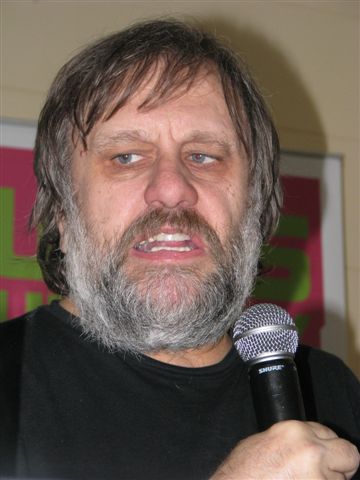How to Write a Paragraph: Slavoj Zizek's Contemporary Writing of Philosophy

Contemporary writers are quite ingenious and keep finding fresh ways in “how to write a paragraph.”
In the introduction to his book In Defense of Lost Causes, Slavoj Zizek —contemporary Slovenian philosopher— writes the following paragraph:
However, which Cause should speak? Things look bad for great Causes today, in a “postmodern” era when, although the ideological scene is fragmented into a panoply of positions which struggle for hegemony, there is an underlying consensus: the era of big explanations is over, we need “weak though,” opposed to all foundationalism, a thought attentive to the rhizomatic texture of reality; in politics too, we should no longer aim at all-explaining systems and global emancipatory projects; the violent imposition of grand solutions should leave room for forms of specific resistance and intervention …If the reader feels a minimum of sympathy with these lines, she should stop reading and cast aside this volume.
Of immediate note is the frequent use of quotation marks; next, note how he opens the paragraph with a rhetorical question, which he immediately proceeds to answer. Within this rhetorical question we can see that he has italicized the relative pronoun ‘which’ and capitalized the word ‘Cause.’ We should also note that he is using the first-person plural —we— in his argument.
To show his respect for feminism, he identifies ‘the reader’ as ‘she.’ This would never have happened in the early 20th century and before. By now, however, we know that to avoid gender-compromising identification, we should use the plural of nouns; thus, ‘the reader’ could be changed to ‘readers,’ which calls for the pronoun ‘they’ instead of ‘she.’
To become a writer I write essays every day. Since English is my second language, in writing essays I consult Mary Duffy's Sentence Openers. When I write fiction --or fiction writing of novels and short stories-- I consult Toolbox for Writers.
Let’s keep in mind that language and writing are always evolving, and that nothing is set in stone when it comes to language.

No comments:
Post a Comment
Comments